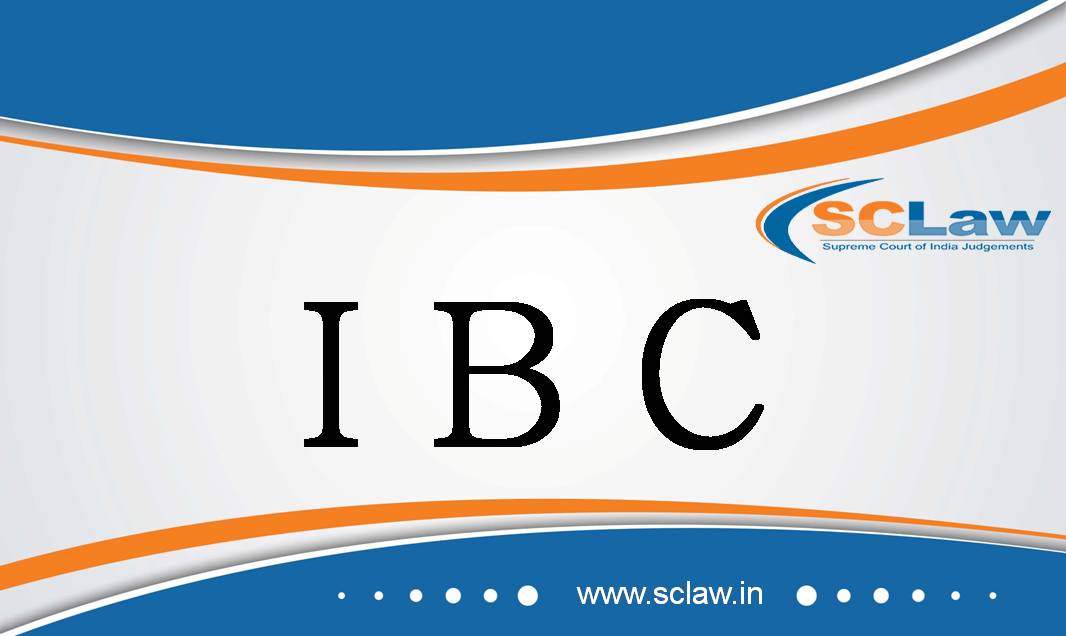What is non-existent in the eye of the law cannot be revived retrospectively. Life cannot be breathed into the stillborn charge memorandum -Allegations against the appellant are serious in nature and ought not to be scuttled on purely technical ground. But the Tribunal in the judgment which was set aside by the High Court had reserved liberty to issue a fresh memorandum of charges under Rule 14 of CCS (CCA) Rules, 1965 as per Rules laid down in the matter, if so advised. Thus, the department’s power to pursue the matter has been reserved and not foreclosed.
SUPREME COURT OF INDIA DIVISION BENCH SUNNY ABRAHAM — Appellant Vs. UNION OF INDIA AND ANOTHER — Respondent ( Before : L. Nageswara Rao and Aniruddha Bose, JJ. ) Civil…
Advocates Act, 1961 – Section 36 and 36B – Misconduct – Disposal of disciplinary proceedings – Direction to bar councils to decide complaints against advocates within period one year of receipt of complaint as mandated under Section 36 B of the Advocates Act
SUPREME COURT OF INDIA DIVISION BENCH K. ANJINAPPA — Appellant Vs. K.C. KRISHNA REDDY AND ANOTHER — Respondent ( Before : M.R. Shah and B.V. Nagarathna, JJ. ) Civil Appeal…
Robbery, or dacoity, with attempt to cause death or grievous hurt – If the charge of committing the offence is alleged against all the accused and only one among the ‘offenders’ had used the firearm or deadly weapon, only such of the ‘offender’ who has used the firearm or deadly weapon alone would be liable to be charged under Section 397 IPC
SUPREME COURT OF INDIA FULL BENCH RAM RATAN — Appellant Vs. STATE OF MADHYA PRADESH — Respondent ( Before : N.V. Ramana, CJI, A.S. Bopanna and Hima Kohli, JJ. )…
Insolvency and Bankruptcy Code, 2016 – Sections 30(2) and 61(3) – Dominant purpose of the IBC is revival of the Corporate Debtor and making it an ongoing concern – ‘commercial wisdom’ of the CoC has been given paramount status without any judicial intervention, for ensuring completion of the processes within the timelines prescribed by the IBC –
SUPREME COURT OF INDIA DIVISION BENCH NGAITLANG DHAR — Appellant Vs. PANNA PRAGATI INFRASTRUCTURE PRIVATE LIMITED AND OTHERS — Respondent ( Before : L. Nageswara Rao and B.R. Gavai, JJ.…
If a candidate is selected in the main list on the basis of the higher priority of the post given by him in the preference sheet, the candidate will not be considered for the remaining post indicated in the preference sheet –
SUPREME COURT OF INDIA DIVISION BENCH MADHYA PRADESH PUBLIC SERVICE COMMISSION — Appellant Vs. MANISH BAKAWALE AND OTHERS — Respondent ( Before : Dr. Dhananjaya Y. Chandrachud and A.S. Bopanna,…
Persons with Disabilities (Equal Opportunities, Protection of Rights and Full Participation) Act 1995 – Section 47 – Initiation of disciplinary proceedings against persons with mental disabilities is a facet of indirect discrimination: – A person with a disability is entitled to protection under the RPwD Act as long as the disability was one of the factors for the discriminatory act
SUPREME COURT OF INDIA FULL BENC RAVINDER KUMAR DHARIWAL AND ANOTHER — Appellant Vs. THE UNION OF INDIA AND OTHERS — Respondent ( Before : Dr. Dhananjaya Y. Chandrachud, Surya…
Territorial Army Act, 1948 – Section 9 – Pension Regulations for the Army, 1961 – Regulations 292 and 173 – A member of the Territorial Army would be entitled to disability pension – A Right to Equality guaranteed under Article 14 of the Constitution of India would also apply to a man who has no choice or rather no meaningful choice,
SUPREME COURT OF INDIA DIVISION BENCH PANI RAM — Appellant Vs. UNION OF INDIA AND OTHERS — Respondent ( Before : L. Nageswara Rao and B.R. Gavai, JJ. ) Civil…
Daily rated employees are not entitled to the Higher pay scale of Rs.950-1500 with all consequential benefits upon completion of 10 years of service and revised their pay scale as per 5th, 6th and 7th Pay Commission scales on such basis – As per the settled proposition of law the economic viability or the financial capacity of the employer is an important factor while fixing the wage structure,
SUPREME COURT OF INDIA DIVISION BENCH RAJESH PRAVINCHANDRA RAJYAGURU AND OTHERS — Appellant Vs. GUJARAT WATER SUPPLY & SEWERAGE BOARD AND OTHERS — Respondent ( Before : Dr. Dhananjaya Y.…
Murder – Cancellation of Bail – While considering an application for bail Courts cannot lose sight of the serious nature of the accusations against an accused and the facts that have a bearing in the case, particularly, when the accusations may not be false, frivolous or vexatious in nature but are supported by adequate material brought on record so as to enable a Court to arrive at a prima facie conclusion
SUPREME COURT OF INDIA FULL BENCH BRIJMANI DEVI — Appellant Vs. PAPPU KUMAR AND ANOTHER — Respondent ( Before : L. Nageswara Rao, B.R. Gavai and B.V. Nagarathna, JJ. )…
Consumer Protection Act, 2019 – Section 35(1)(c) – Joint complaint – Where a residential apartment is purchased by the husband and wife jointly or by a parent and child jointly. If they have a grievance against the builder, both of them are entitled to file a complaint jointly. Such a complaint will not fall under Section 35(1)(c) but fall under Section 35(1)(a). Persons filing such a complaint cannot be excluded from Section 2(5)(i) on the ground that it is not by a single consumer.
SUPREME COURT OF INDIA DIVISION BENCH BRIGADE ENTERPRISES LIMITED — Appellant Vs. ANIL KUMAR VIRMANI AND OTHERS — Respondent ( Before : Hemant Gupta and V. Ramasubramanian, JJ. ) Civil…











